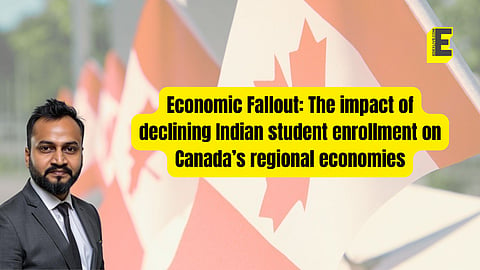

Canada has long been a preferred destination for international students, with over 320,000 Indian students enrolling in Canadian institutions in 2022. This influx brings in approximately $4.4 billion to the Canadian economy, covering tuition, living expenses, and other costs.
However, recent diplomatic tensions between Canada and India pose a significant threat to this vital revenue stream.
A decline in Indian student enrollment could lead to serious economic repercussions across various regions. For instance, the Greater Toronto Area (GTA) benefits by more than $1.6 billion annually from Indian students, who support local businesses in housing, food services, retail, and transportation.
Similarly, cities like Vancouver and Calgary rely heavily on international students, contributing $600 million and $400 million, respectively, to their economies.
Moreover, Canadian universities depend on international tuition fees, which are often three times higher than domestic rates.
A drop in enrollment not only jeopardizes university budgets but could also force institutions to cut programs and services, ultimately affecting job creation in the education sector.
To mitigate these challenges, Canadian policymakers must strengthen ties with India and foster a welcoming environment for international students. By doing so, Canada can safeguard its reputation as a top global education destination and ensure the economic stability of its regional communities.
The stakes are high, and proactive measures are essential to prevent an economic downturn driven by a decline in international student enrollment.
(Ashish Kumar is the Founder & CEO of EdTech company Tutela Prep, which simplifies test prep and study abroad research. Views expressed are his own.)
